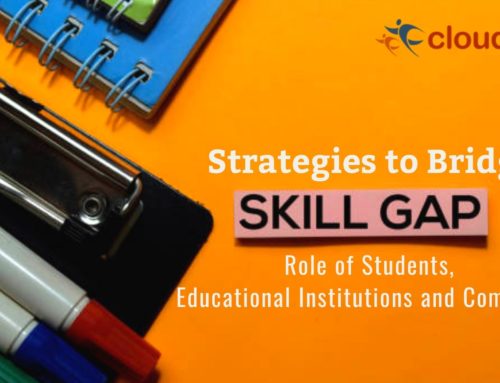In this era of evolving work styles, recruiting has become an increasingly difficult challenge. It is particularly due to the trend of having smaller teams and limited budgets, all while still being expected to achieve the same outcomes.
According to industry reports, 53% of recruiters encounter obstacles related to accessing the appropriate skills while recruiting tech talent. Additionally, 45% of their budget is inadequate for this purpose. This article addresses technology recruitment challenges and provides solutions to improve your recruitment strategy for greater success.
What Makes Recruiting Challenging in the Technology Industry?
As technology becomes increasingly crucial to the world, the demand for skilled tech employees continues to grow. While the number of developers worldwide is significant at 26.9 million as per Evans Data records, the shortage of software engineers with the necessary skills is a genuine issue.
McKinsey & Company’s research reveals that within the next five years, a minimum of 44% of prominent organizations will face a technology skills gap.
Technology Recruitment Challenges and Solutions
From offering remote work options to attracting developers with high salaries or extravagant perks, companies have always tried and tested various techniques to hire top talent. However, the challenges with technology recruitment have always been evolving. Below we discuss 6 critical challenges that tech recruitment faces and probable solutions to overcome them.
Challenge #1: Identifying Suitable Applicants Amid Talent Crisis
The scarcity of developers continues to rise as many candidates frequently lack the demands of the necessary qualification. This further prolongs the recruitment procedure.
In addition, recruiter teams lack experience in assessing tech professionals from other countries. Expanding the recruitment process internationally can present challenges such as:
- Unfamiliarity with foreign IT certifications
- Language barriers
- Cultural differences
Solutions:
Avoid Overemphasizing IT Degree Prerequisites:
Self-taught developers may not have an impressive academic background, but they could possess the experience and specific skills required for the job.
Diversify Your Hiring Strategies:
To overcome technical recruitment challenges, it’s crucial not to limit yourself to a single recruitment strategy or channel. Here are alternatives you cannot ignore:
- Referrals: 27% of developers found their current job through a referral from someone they knew.
- Code-a-thons: Code-a-thons or coding competitions effectively observe and assess a developer’s performance and abilities.
- Use Diverse Job Portals: Hunt for talent where it exists. For instance, Indeed is utilized by 56% of companies to recruit tech candidates and makes it a go-to source for hiring tech talent in India. Similarly, Glassdoor is an impressive job portal to find talent from across the globe with 30 million users from 190 countries and corporate clients, including one-third of all Fortunate 500 companies.
Challenge #2: Lengthy hiring process
A lengthy hiring process due to a shortage of qualified candidates or internal struggles may result in losing top talent to competitors in addition to increased recruitment costs and delays in operations.
Solutions:
Review your hiring process: Assess if all stages are necessary, if we’re sourcing candidates effectively, and if communication is efficient. Utilize recruiting metrics in your Applicant Tracking System (ATS) for answers.
Set realistic expectations: Understand that a long hiring timeline for challenging roles is normal. Communicate realistic expectations to hiring teams and emphasize the importance of thorough hiring to avoid costly mistakes.
Challenge #3: Differentiating from Competitors
The IT industry is highly competitive, with companies vying for skilled candidates in an ever-evolving technological landscape. Industries now require developers to boost their digital presence and stand apart from competitors.
A CodinGame survey showed that 25% of IT recruiters struggle to differentiate their company to attract talent. Understanding candidate preferences is crucial to overcome this challenge, especially for resource-limited startups.
Solution:
Offer flexibility: High salaries are important for tech candidates, but remote work and great healthcare benefits are top priorities. A Dice survey confirmed these preferences, and a DigitalOcean study showed that 43% of developers consider remote work a must-have for job offers.
Challenge #4: Attracting Passive Job Seekers
Given that 70% of the worldwide labor force consists of inactive job seekers, LinkedIn states that nearly 87% of active and inactive job seekers are receptive to new employment opportunities.
Solutions:
To tap into this pool of potential hires, here are three solutions:
- Implement a recruitment management system to organize and track your pool of inactive job seekers within your current database.
- Design customized job promotion emails to boost the response rate from inactive job seekers during talent scarcity.
- Highlight your company culture and employer branding to attract inactive job seekers by sharing images of your office, testimonials, and participation in workplace activities.
Suggested Reading: How does ChatGPT help Recruitment?
Challenge #5: Tedious Tech-tasks
Time-consuming IT skill assessment tasks can complicate tech recruitment. It can result in candidate dissatisfaction and withdrawal.
Solutions:
To overcome this issue, consider alternative methods of evaluating technical skills, such as:
- Coding exercises
- Pair programming
- Pre-screening interviews
If you do use assessments, keep them concise and consider providing compensation.
Challenge #6: Employer Image
A strong employer brand attracts quality candidates, with investment in branding yielding three times more successful hires.
Solution:
To accomplish this, it is important to improve candidate experiences. You should showcase your company culture on social media and secure support from current employees.
To achieve the best results, respond graciously to online reviews. You should encourage employees to share their experiences and, at the same time, be a responsible and reputable employer.
Suggested Reading: Strategies to Personalize Your Recruitment Process
Summing it Up
Technology recruitment presents unique challenges, including identifying suitable applicants within time and budget constraints, differentiating from competitors, and losing candidates to competitors with better employer image. To overcome these obstacles, consider diversifying hiring strategies, prioritizing remote work options, and improving candidate experiences and employer branding.
Ultimately, partnering with technology staffing companies can provide valuable support and expertise to navigate these challenges and secure top tech talent for your organization.
At Cloudely, we help technology firms with recruitment challenges. Email us at hello@cloudely.com to hire the best tech talent before your competitor does.






